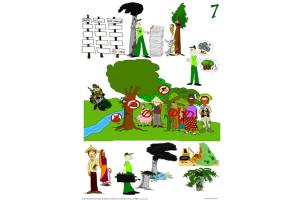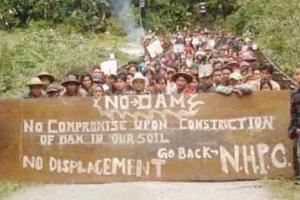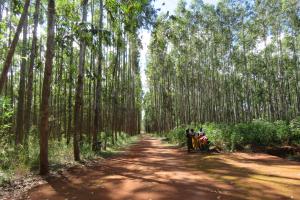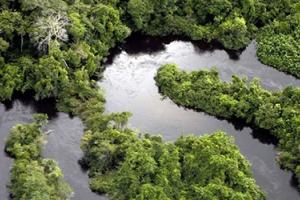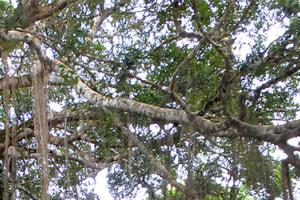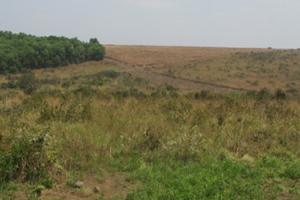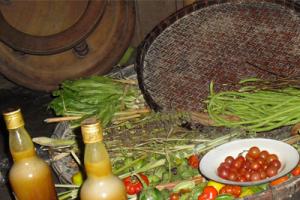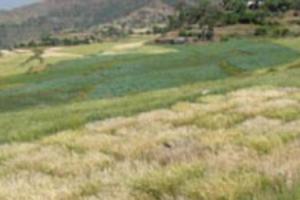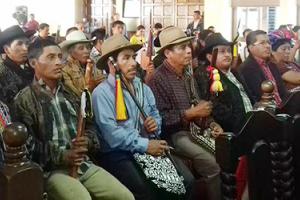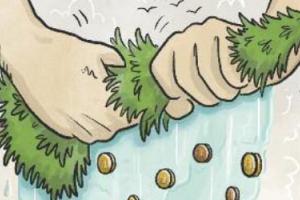Seven flipchart posters and a booklet to help community activists to explain why REDD+ is not really about forests.
The Green Economy
The Green Economy is a tactic used to “clean up” the image of corporations rather than address corporate capture and capitalism as the true drivers of deforestation. False solutions promoted under the Green Economy include certification, sustainable forest management, ecosystem services, REDD+, the bioeconomy, nature-based climate solutions, and zero net deforestation. Rather than stopping it, these “solutions” support corporate-driven destruction that is causing a deep social and ecological crisis.
Publications
10 May 2017
Bulletin articles
4 April 2017
The region typically known as “India’s North East” or also referred to as just “North East” is linked tenuously with mainland India by a roughly 20 kilometer-wide land bridge, and surrounded by Nepal, Bhutan, China, Myanmar and Bangladesh. There are over 200 indigenous and tribal communities living in this region, most of whom share similarities in culture, food, clothing, economy and polity, and evolved diverse laws and institutions specific to each tribe.
Bulletin articles
8 February 2017
Bulletin articles
7 February 2017
Bulletin articles
7 February 2017
In December 2015, the Paris Agreement was celebrated with great fanfare. This agreement, part of the United Nations Framework Convention on Climate Change (UNFCCC), establishes new measures to reduce Greenhouse Gas Emissions, which are responsible for global warming.
Bulletin articles
6 February 2017
Bulletin articles
8 December 2016
Bulletin articles
8 December 2016
At a meeting in a wixárika community in Jalisco, México, with organizations and villagers from other areas, the language we used to communicate was Spanish. We discussed threats to territories, corn, transgenics, agrochemicals, “biopiracy” and the patenting of plants and indigenous knowledge. Most participants were wixáritari (called huicholes in Spanish). During the meeting, they talked amongst themselves in their language. They say words like “transgenics” and “biopiracy” in Spanish.
Bulletin articles
8 December 2016
Skilful selection and nurturing of the seeds best suited to a particular location are at the heart of peasant farming and agroforestry systems. The resulting agrobiodiversity of hundreds of thousands of crop varieties and animal races found in peasants' fields around the globe provides the corner stone of the world’s food system. Peasant farmers and the local varieties that they developed are still feeding the majority of us.
Bulletin articles
8 December 2016
Guatemala is located in the heart of Mesoamerica. Its enormous cultural diversity is a historical legacy of the Mayan culture, in which indigenous communities have developed systems of organizational thought and self-government—always tied to knowledge based on their worldview, spirituality and the continuous maintaining and renewing of their relationship with Mother Earth.
Bulletin articles
8 December 2016
The CBD is a forum where organizations and movements can bring our positions and try to get them reflected in official documents. We do not believe the world will be changed at COP meetings (gatherings of CBD member governments), other CBD meetings, or any other United Nations Convention. It is a working space complementary to the daily work of resistance, mobilization, and transformation that we are doing at the grassroots level, together with local communities and Indigenous Peoples.
